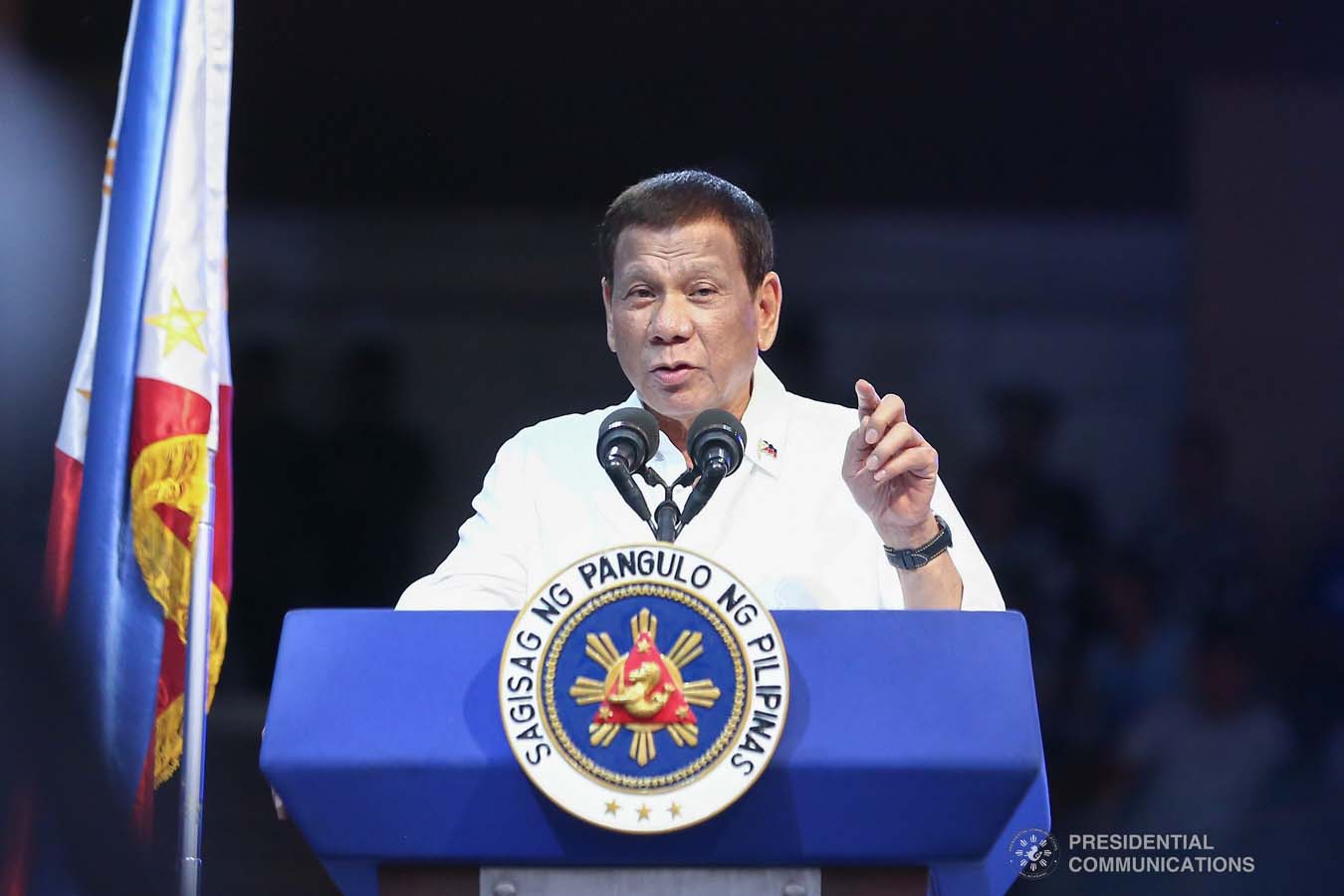News
VFA termination is ‘studied, tactical’ decision: Palace

FILE: President Rodrigo Roa Duterte at the Quirino Grandstand in Manila on December 20, 2019. REY BANIQUET/PRESIDENTIAL PHOTO
MANILA – President Rodrigo Duterte’s move to scrap the Philippines’ 22-year-old Visiting Forces Agreement (VFA) with the United States (US) is a “studied” and “tactical” decision, Malacañang said on Thursday.
Presidential Spokesperson Salvador Panelo said Duterte has sufficient grounds to scrap the VFA, but could not spill additional information which he deems as classified matters.
“The decision of the President to terminate the VFA is a studied decision. It is a tactical and strategical decision stated by him,” Panelo said in a Palace press briefing.
“In other words, he has something in his mind which was not shared with us, which is of course a privilege of the chief architect of the foreign policy of this country,” he added.
In a media interview on Wednesday, Duterte said the revocation of VFA between Manila and Washington would push through.
Panelo maintained that Duterte had no choice but terminate VFA because of the “brazen interference” and “disrespect” of US Senate with the Philippines’ judicial system.
He said the US’ demand to release detained Senator Leila de Lima, passage of a resolution condemning Duterte’s drug war, imposition of travel ban order against Philippine officials linked to De Lima’s arrest, and cancellation of Senator Ronald dela Rosa’s US visa were Duterte’s “primary reasons” to scrap VFA.
“Sabi niya (Duterte) final na (He said it’s already final),” Panelo said. “We will have to write them formally. Then the effectivity is 180 days after.”
The VFA, which was inked by the Philippines and the US on Feb. 10, 1998, allows US troops to visit the Philippines sans passport and visa restrictions and gives them the privilege to use their permits and licenses in the host country.
The agreement also grants the US jurisdiction over its military personnel who commit crimes in the Philippines unless their lawless acts can be punished in Manila.
The deal can be revoked by the Philippines by sending a formal notification to the US.
No impact on Pembertos’ conviction
Despite the impending cancellation of VFA, the Philippines will retain its jurisdiction over the case of US Marine Lance Corporal Joseph Scott Pemberton who is currently detained at Camp Aguinaldo in Quezon City, Panelo stressed.
Panelo ensured that the termination of the agreement would not have an impact on Pemberton’s conviction.
“We acquired jurisdiction over him (Pemberton) and therefore, the jurisdiction remains. You must remember that the VFA states that we cannot acquire jurisdiction unless of particular importance and we already did that,” he said.
“Hence, logic will tell us that the termination of VFA will not affect the acquisition of jurisdiction by the Philippine courts,” he added.
The Olongapo Regional Trial Court in 2015 found Pemberton guilty of killing transgender Filipino woman Jennifer Laude.
Pemberton was sentenced to serve a jail term of up to six years.
‘Protest’ vs. US
Apart from revoking the VFA, Duterte also directed Cabinet secretaries, except Foreign Affairs Secretary Teodoro Locsin Jr., to refrain from travelling to US.
Panelo said the President’s travel ban order covers the “personal and family” trips of Cabinet officials to Washington.
He said that Duterte’s directive, which is “more of a protest against US actions,” also effectively applies to other government officials, as well as to the presidential family.
“We have to defer to the President’s wishes,” the Palace official said. “My personal insight on that decision sa (on the) boycott is more of a protest sa ginawa nila, sa ginagawa nila sa mga kababayan natin (against the US’s actions that are disadvantageous to our fellow countrymen).”
Not appeasing China, Russia
Panelo also clarified that Duterte’s latest pronouncements against the US were not meant to bolster ties with China and Russia.
He said the Chief Executive was merely piqued by the US government’s actions against his administration.
“Not necessarily. His decision was mainly based on the actions of the US government, with respect to the US Senate and the US Immigration,” he said.
“It’s about time that we, as a country, (rely) on our own resources. We cannot be relying on others. We have to strengthen our capability in defending ourselves from foreign intrusions. By relying mainly on one particular country, you lessen your capability from the moment that alliance with that country is terminated,” he added.





















